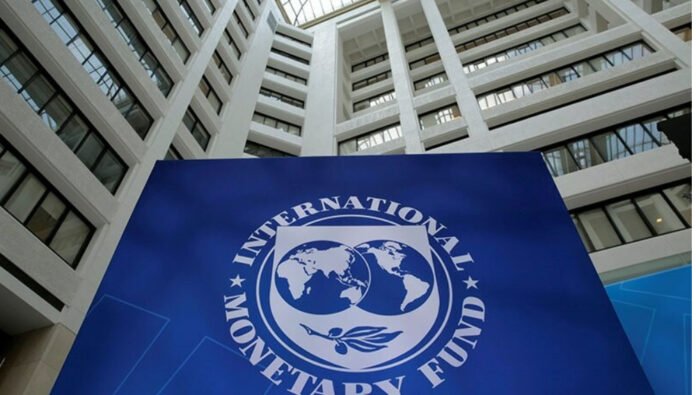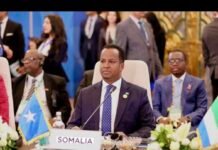By Horn Africa News Staff
The International Monetary Fund (IMF) has officially urged the Federal Government of Somalia to accelerate the long-delayed process of printing new Somali Shilling banknotes, describing it as a critical step in restoring monetary stability and meeting the pressing needs of citizens who continue to face severe currency shortages.
The call came after the IMF Executive Board completed the third review of Somalia’s debt relief program under the Heavily Indebted Poor Countries (HIPC) Initiative — a milestone that has cleared the way for the disbursement of an additional $10 million in financial assistance to Somalia.
In a comprehensive statement issued this week, the IMF acknowledged significant progress by the Somali authorities in implementing fiscal reforms, including improvements in domestic revenue collection, modernization of financial governance, and the passage of a new income tax law. The board noted these measures have contributed to strengthening the country’s economic framework and enhancing transparency.
However, the IMF emphasized that much more needs to be done — particularly in monetary policy — to build confidence in the financial system and improve daily economic life for ordinary Somalis.
“There is an urgent need for Somalia to reintroduce new Somali Shilling banknotes to meet the liquidity demands of the population and formalize financial transactions,” the IMF stated. “The absence of credible and reliable currency continues to hinder economic activity, especially in rural areas and informal sectors.”
The Somali currency, which has not been officially printed in meaningful quantities since the early 1990s due to decades of conflict and instability, has largely been replaced by U.S. dollars and counterfeit notes in the marketplace. As a result, Somalia remains one of the few countries in the world without an effective national currency in circulation.
In addition to the currency issue, the IMF’s report also highlighted Somalia’s emerging oil and petroleum sector. The board welcomed ongoing exploration efforts but warned that without strong legal frameworks and anti-corruption measures, the sector risks becoming a source of mismanagement and political tension.
“Somalia’s natural resources could become a key pillar of long-term development,” the IMF said. “But the government must act swiftly to implement anti-corruption laws and ensure full transparency in all contracts and revenue-sharing mechanisms.”
Despite recent achievements, the IMF revised down its economic growth forecast for Somalia in 2025, compared to projections made for 2024. The board cited ongoing security challenges, limited infrastructure, and external shocks, including global economic trends, as contributing factors to the downward adjustment.
The IMF’s recommendations are expected to influence Somalia’s financial planning and development agenda in the coming months, particularly as the country edges closer to completing the final stages of the HIPC debt relief process. Full debt cancellation would mark a historic turning point for Somalia, allowing the government to reallocate resources toward critical areas such as public services, infrastructure, and job creation.
The Somali Ministry of Finance has not yet issued a formal response to the IMF’s latest statement, but insiders suggest that discussions on the currency reissue have already begun in coordination with the Central Bank of Somalia and international partners.
The reintroduction of the Somali Shilling is widely seen as a symbolic and practical step toward restoring national sovereignty and economic independence — goals that remain central to the country’s recovery from decades of turmoil.





